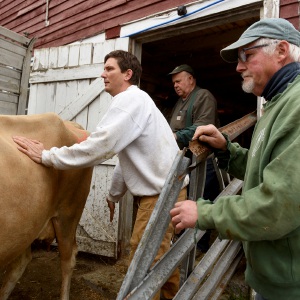| Published: 04-05-2024 5:33 PM |
I believe I am as qualified as anyone in the Upper Valley to speak on the subject of playing D-1 basketball. Growing up in Claremont, I went to Stevens and dreamed of playing basketball in college. As it turned out, I was accepted to multiple top universities, including Dartmouth. I chose a different school because the academic scholarship offer was greater. There were no athletic scholarships, and I had to work two jobs on campus during the school year and a summer job to make up the difference in my tuition. I carried a full course load and played D-1 basketball as well.
I know only too well what the Dartmouth players deal with on a daily basis; class, exams, study, practice, travel, in addition to work and trying to have a social life. It’s not easy.
However, playing college basketball is a privilege, not a job. No one said you had to play. I never once felt like an employee of my university. I always felt like a representative of my school, a representative of my family, my community, Stevens High and everyone along the way who helped make this possible for me. It was payment enough to play in the same games and on the same courts as players like Geoff Petrie, Jim McMillan, Fred “Mad-Dog” Carter, Dave Newmark and John Hummer (NBA players all) and see coaches on the opposing bench like Bob Knight, Pete Carill and Johnny Bach. I don’t understand why those kind of memories don’t mean much to the modern players.
A basketball team is a very different thing than any type of workforce. I don’t blame Dartmouth for refusing to bargain with this group. A Dartmouth degree and the college basketball experience should be enough for anyone. I’m sure that some people will consider me too old to understand today’s game and players. If these guys truly believe that they are employees of the college, then I feel bad for them because they are missing out on some of the joy that comes with being able to call yourself a D-1 college athlete.
Thomas L Franklin
White River Jct
Kenyon treads
dangerous ground
It was bad enough when Jim Kenyon’s criticisms of the Dartmouth administration were merely boring and biased. (Full disclosure: Dartmouth is my employer). But now, in his March 30 column (“Behind the scenes, a flurry of activity”), Kenyon has embraced criticism rooted in anti-Semitism.
Article continues after...
Yesterday's Most Read Articles
 Herd departs Hartford’s last remaining dairy farm
Herd departs Hartford’s last remaining dairy farm
 Bald eagles are back, but great blue herons paid the price
Bald eagles are back, but great blue herons paid the price
 At Dartmouth, hundreds protest ongoing war in Gaza and express support for academic freedom
At Dartmouth, hundreds protest ongoing war in Gaza and express support for academic freedom
 Kenyon: What makes Dartmouth different?
Kenyon: What makes Dartmouth different?
 A Life: Richard Fabrizio ‘was not getting rich but was doing something that made him happy’
A Life: Richard Fabrizio ‘was not getting rich but was doing something that made him happy’
Specifically, Kenyon quotes and gives credence to a Barnard graduate who in 2018 described President Sian Beilock as being “in the grip of Zionist alumnae” who were trying to protect their “identity as Jews.” This description is an old anti-Semitic trope, in which Jews are powerful puppet-masters, manipulating everything from financial markets to world leaders. This trope is the basis of the early 20th century anti-Semitic tract “The Protocols of the Elders of Zion.” That book’s charges of Jewish conspiratorial power fueled pogroms in Eastern Europe that took the lives of tens of thousands of Jews. And it feuled the Holocaust, in which 6 million Jews were murdered.
And let us not forget Kenyon’s July 23 column, in which he criticized President Beilock for seeking to hire an assistant. That column was rooted in nothing but misogyny. It now appears there is no ideology so hideous that Kenyon won’t use it to promote his brand.
Ellen Rockmore
Hanover
Testosterone testing
would clear things up
The Plymouth High School trans woman saga commented upon in Sports (“I really just don’t want to move,” March 22), touches on the broadly related fairness, political and emotional issues. The story does not address — nor does it indicate whether the bill in the New Hampshire Legislature will — the threshold levels of her testosterone. This is easily measured, and it would not give the young woman any unfair advantage over other girls. She was only 13 years old when beginning transitioning, so there was little time for her normal boys’ testosterone to advance her muscles, and normal young women have levels less than a third that of teenage boys.
If schools and the New Hampshire Interscholastic Athletic Association would require ascertaining testosterone levels in such competitors being below 100 nanograms per deciliter (the normal level for teenage girls is 10-75 ng/dL; boys between 200-500) it would be clear that young trans women pose no advantage beyond their own skills and enthusiasm. It is easier and simpler, but blindfolded, to make generalizations without accounting for the unique, specific hormonal influence at play.
Andrew Taylor
Grantham
The writer is an endocrinologist.

 Editorial: Chris Sununu’s moral vacuum
Editorial: Chris Sununu’s moral vacuum Editorial: Gambling tarnishes America’s sporting life
Editorial: Gambling tarnishes America’s sporting life By the Way: A white nationalist’s many mistruths
By the Way: A white nationalist’s many mistruths Column: The age-old question of what to read
Column: The age-old question of what to read
